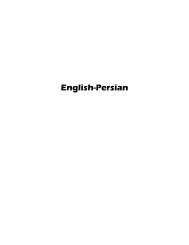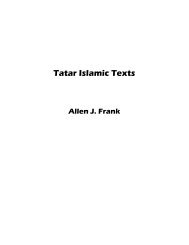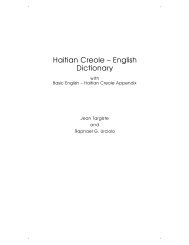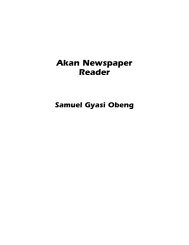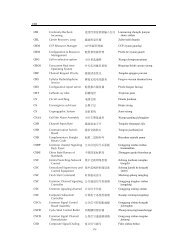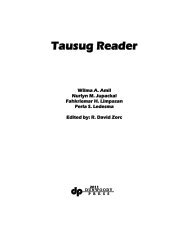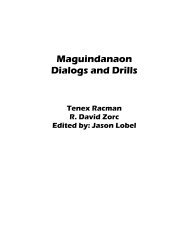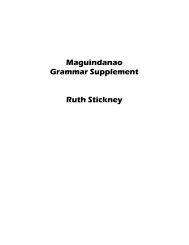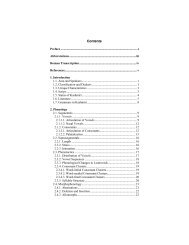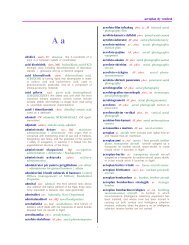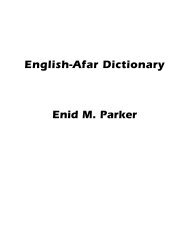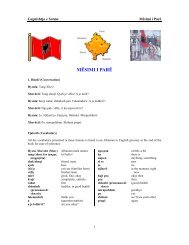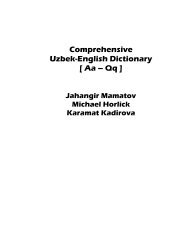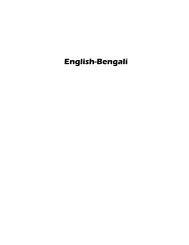Zulu Newspaper Reader - Dunwoody Press
Zulu Newspaper Reader - Dunwoody Press
Zulu Newspaper Reader - Dunwoody Press
You also want an ePaper? Increase the reach of your titles
YUMPU automatically turns print PDFs into web optimized ePapers that Google loves.
nasojwini ‘and in (or from) honey.’ One would not know that the<br />
noun izinti ‘sticks’ should be looked up under -thi or uthi ‘stick’<br />
depending upon the dictionary consulted, or that -lunyw- ‘be bitten’<br />
derives from -lum- ‘bite,’ -khishw- ‘be taken out’ from -khiph- ‘take<br />
out,’ and -vez- ‘bring out’ from -vel- ‘come from.’<br />
Using the Vocabularies and Glossary<br />
The vocabularies that appear at the end of each reading are given in<br />
the order in which they appear in the text, and not alphabetically<br />
(The Glossary, on the other hand, is given alphabetically.). In longer<br />
readings the text is divided into sections with each section preceded<br />
by a number, «x», that is repeated in the vocabulary to facilitate<br />
location of an item. Any item that has already appeared previously in<br />
a vocabulary is not repeated. If the reader is not familiar with a form<br />
in a particular reading, and cannot find it in the vocabulary<br />
concerned, then one should check the overall Glossary (p. 275).<br />
Another reason that a particular item may not be found in a<br />
vocabulary, even though it has not appeared before, is that it should<br />
be easily deduced from previous knowledge. Thus, for example, if<br />
the noun izicelo ‘requests’ were to occur in a reading, it would not<br />
be given in the vocabulary if the singular, isicelo, has appeared<br />
previously, since a knowledge of the noun prefixes and noun class<br />
system should tell one unambiguously what the singular form would<br />
be. However, we have made sure that the singulars of all nouns are<br />
given in the Glossary.<br />
The vocabularies and the overall Glossary have the following<br />
structure:<br />
ABC def, ghi (jk) [L; M; N] {P} Sx, Sy<br />
where ABC is the <strong>Zulu</strong> form (morpheme, word or phrase), which is<br />
given in alphabetical order. This is followed by ‘def, ghi’ which are<br />
one or more English glosses of the <strong>Zulu</strong>. Extra information about the<br />
meaning, such as the literal meaning of a phrase, or some<br />
explanation is sometimes given in (jk). Grammatical information,<br />
such as part of speech, noun class, singular or plural forms, tense,<br />
mood and aspect are given in [L; M; N]. Useful information such as<br />
the fact that a conjunction or auxiliary verb may require a particular<br />
mood to follow it is also given in the square brackets. Here too,<br />
information about the derivation of an item may be included, with<br />
more detail sometimes being given in the Glossary than in the<br />
vii



